#include <stdio.h>#include <stdlib.h> #define N 4 int main() { int x[N] = {1, 9, 8, 4}; int i; int *p; for(i=0; i<N; ++i) printf("%d", x[i]); printf("\n"); for(p=x; p<x+N; ++p) printf("%d", *p); printf("\n"); p = x; for(i=0; i<N; ++i) printf("%d", *(p+i)); printf("\n"); p = x; for(i=0; i<N; ++i) printf("%d", p[i]); printf("\n"); system("pause"); }
#include <stdio.h> #include <stdlib.h> #define N 4 int main() { char x[N] = {'1', '9', '8', '4'}; int i; char *p; for(i=0; i<N; ++i) printf("%c", x[i]); printf("\n"); for(p=x; p<x+N; ++p) printf("%c", *p); printf("\n"); p = x; for(i=0; i<N; ++i) printf("%c", *(p+i)); printf("\n"); p = x; for(i=0; i<N; ++i) printf("%c", p[i]); printf("\n"); system("pause"); return 0; }
2004
2001
int型指针变量占四个字节的内存单元
char型指针变量占一个字节的内存单元
#include <stdio.h> #include <stdlib.h> int main() { int x[2][4] = { {1,9,8,4}, {2,0,2,2}} ; int i, j; int *p; int (*q)[4]; for(i=0; i<2; ++i) { for(j=0; j<4; ++j) printf("%d", x[i][j]); printf("\n"); } for(p = &x[0][0], i = 0; p < &x[0][0] + 8; ++p, ++i) { printf("%d", *p); if( (i+1)%4 == 0) printf("\n"); } for(q=x; q<x+2; ++q) { for(j=0; j<4; ++j) printf("%d", *(*q+j)); printf("\n"); } system("pause"); }
#include <stdio.h> #include <stdlib.h> int main() { char x[2][4] = { {'1', '9', '8', '4'}, {'2', '0', '2', '2'} }; int i, j; char *p; char (*q)[4]; for(i=0; i<2; ++i) { for(j=0; j<4; ++j) printf("%c", x[i][j]); printf("\n"); } for(p = &x[0][0], i = 0; p < &x[0][0] + 8; ++p, ++i) { printf("%c", *p); if( (i+1)%4 == 0) printf("\n"); } for(q=x; q<x+2; ++q) { for(j=0; j<4; ++j) printf("%c", *(*q+j)); printf("\n"); } system("pause"); }
2004 2016
2001 2004
p指向的是二维数组元素的指针变量
q是指向一维数组的指针变量
#define _CRT_SECURE_NO_WARNINGS
#include<stdio.h>
#include<string.h>
#define N 80
int main()
{
char s1[] = "C, I love u.";
char s2[] = "C, I hate u.";
char tmp[N];
printf("sizeof(s1) vs. strlen(s1): \n");
printf("sizeof(s1) = %d\n", sizeof(s1));
printf("strlen(s1) = %d\n", strlen(s1));
printf("\nbefore swap: \n");
printf("s1: %s\n", s1);
printf("s2: %s\n", s2);
printf("\nswapping...\n");
strcpy(tmp, s1);
strcpy(s1, s2);
strcpy(s2, tmp);
printf("\nafter swap: \n");
printf("s1; %s\n", s1);
printf("s2: %s\n", s2);
return 0;
}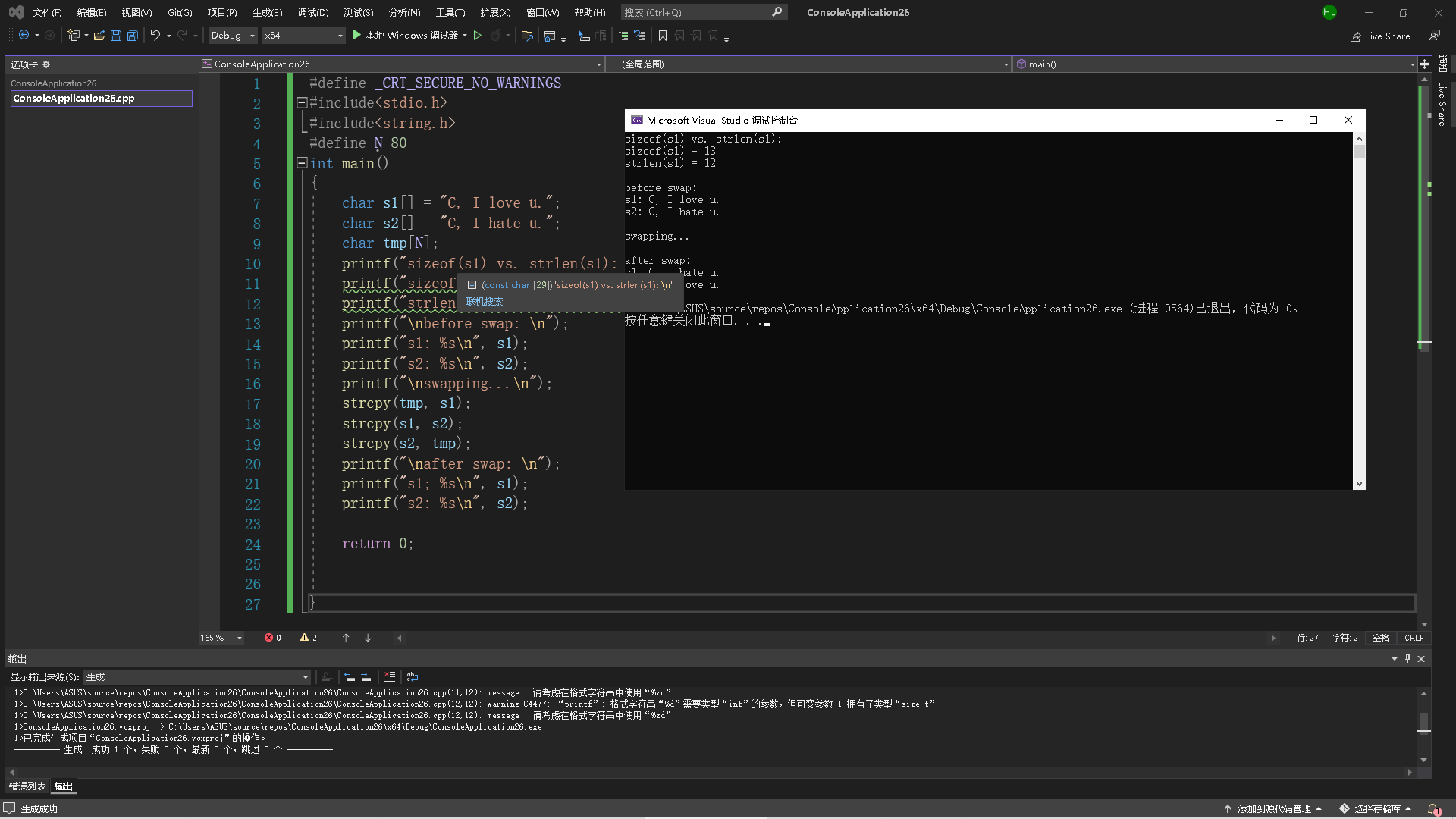
#include<stdio.h>
#include<string.h>
#define N 5
int check_id(char* str);
int main()
{
char* pid[N] = {
"31010120000721656X",
"330106199609203301",
"53010220051126571",
"510104199211197977",
"53010220051126133Y" };
int i;
for (i = 0; i < N; i++)
if (check_id(pid[i]))
printf("%s\tTrue\n", pid[i]);
else
printf("%s\tFalse\n", pid[i]);
return 0;
}
int check_id(char* str)
{
int i;
if (strlen(str) != 18)
return 0;
for (i = 0; i < 18; i++)
{
if ((str[i] >= '0' && str[i] <= '9') || str[i] == 'X')
continue;
else
return 0;
}
return 1;
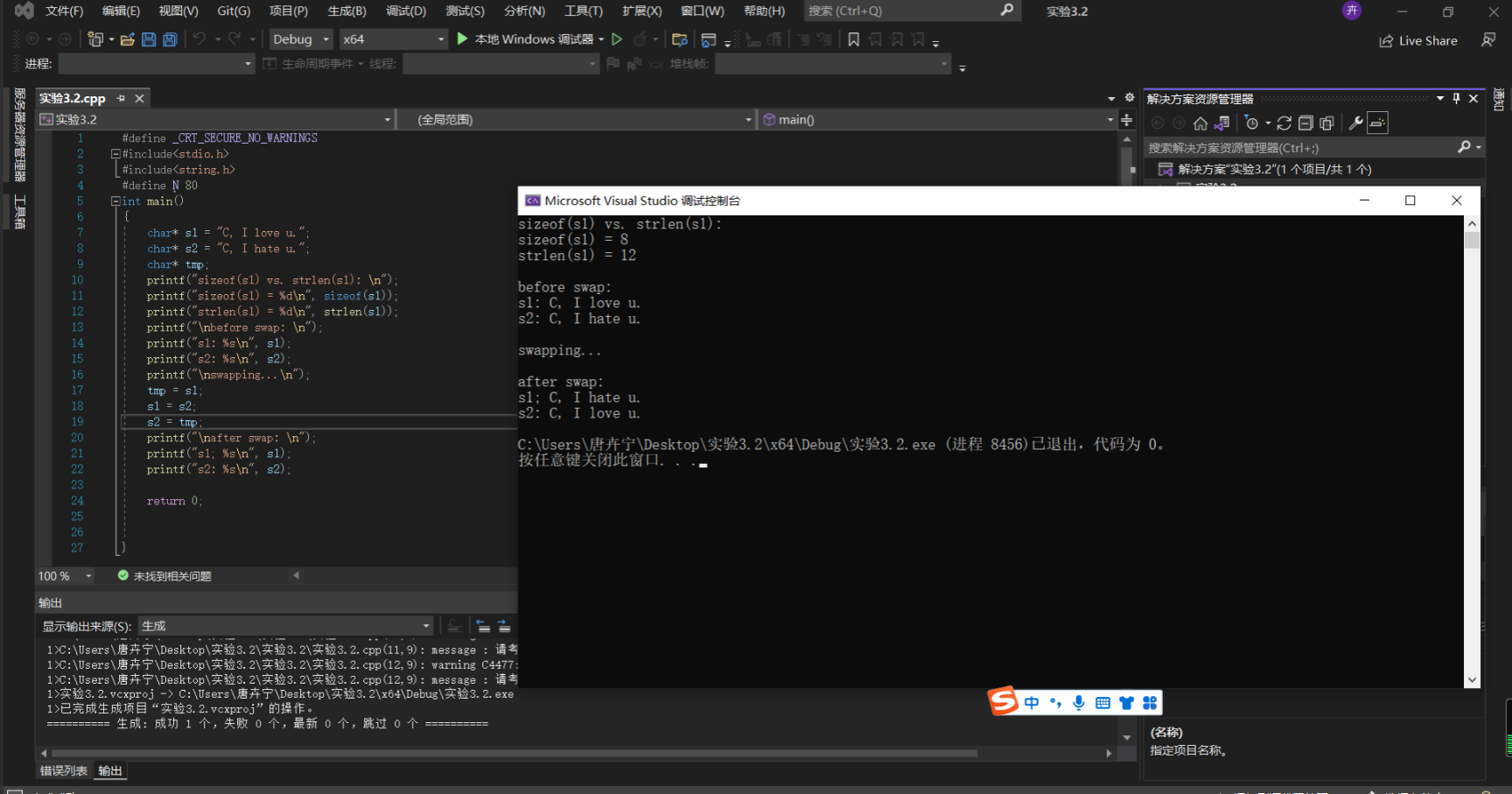
实验3.1:1.大小是13;计算的是数组s1的大小;统计的是数组s1中的有效字符;
2.不能;
3.交换了。
实验3.2:1.存放的是字符串的首地址;计算的是地址变量s1所占的字节数;统计的是所有有效字符的个数;
2.可以;
3.交换的是地址;在内存存储单元中没有交换。
#include<stdio.h> #include<string.h> #define N 5 int check_id(char* str); int main() { char* pid[N] = { "31010120000721656X", "330106199609203301", "53010220051126571", "510104199211197977", "53010220051126133Y" }; int i; for (i = 0; i < N; i++) if (check_id(pid[i])) printf("%s\tTrue\n", pid[i]); else printf("%s\tFalse\n", pid[i]); return 0; } int check_id(char* str) { int i; if (strlen(str) != 18) return 0; for (i = 0; i < 18; i++) { if ((str[i] >= '0' && str[i] <= '9') || str[i] == 'X') continue; else return 0; } return 1; }
#include<stdio.h> #include<string.h> #define N 80 int is_palindrome(char* s); int main() { char str[N]; int flag; printf("Enter a string:\n"); gets_s(str); flag = is_palindrome(str); if (flag) printf("YES\n"); else printf("NO\n"); return 0; } int is_palindrome(char* s) { int i,j; j = strlen(s); for (i = 0;s[i]!='\0'; i++) { if (s[i] == s[j - i-1]) continue; else return 0; } return 1; }
#include<stdio.h> #define N 80 void encoder(char* s); void decoder(char* s); int main() { char words[N]; printf("输入英文文本: "); gets_s(words); printf("编码后的英文文本: "); encoder(words); printf("%s\n", words); printf("对编码后的英文文本解码: "); decoder(words); printf("%s\n", words); return 0; } void encoder(char* s) { int i,j=0; for (i = 0; s[i] != '\0'; i++) j++; for (i = 0; i < j; i++) { if ((s[i] >= 'a' && s[i] < 'z') || (s[i] >= 'A' && s[i] < 'Z')) s[i] = s[i] + 1; else if ((s[i] == 'z') || (s[i] == 'Z')) s[i] = s[i] - 25; } } void decoder(char* s) { int i, j = 0; for (i = 0; s[i] != '\0'; i++) j++; for (i = 0; i < j; i++) { if ((s[i] > 'a' && s[i] <= 'z') || (s[i] > 'A' && s[i] <= 'Z')) s[i] = s[i] - 1; else if ((s[i] == 'a') || (s[i] == 'A')) s[i] = s[i] + 25; } }
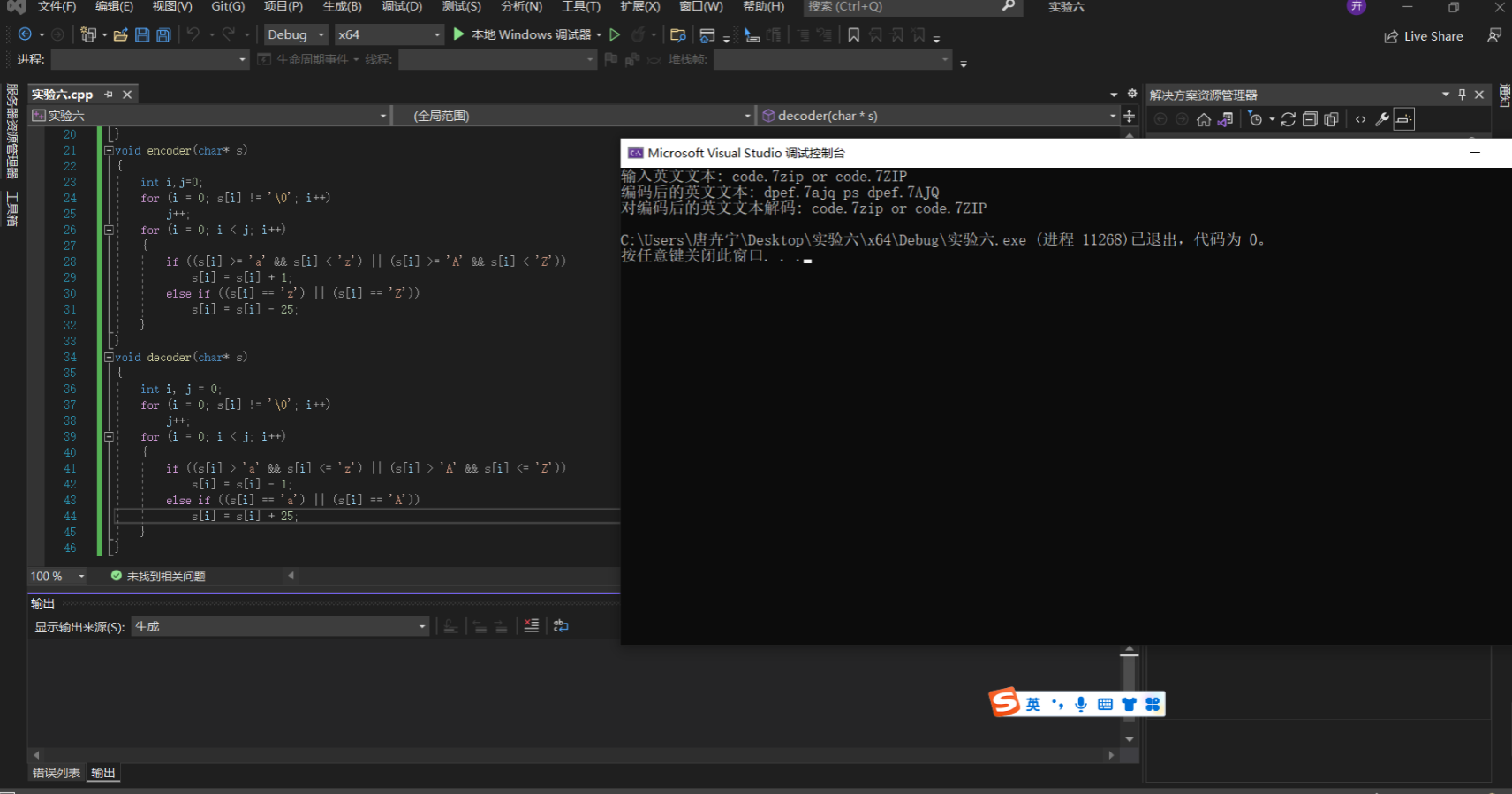



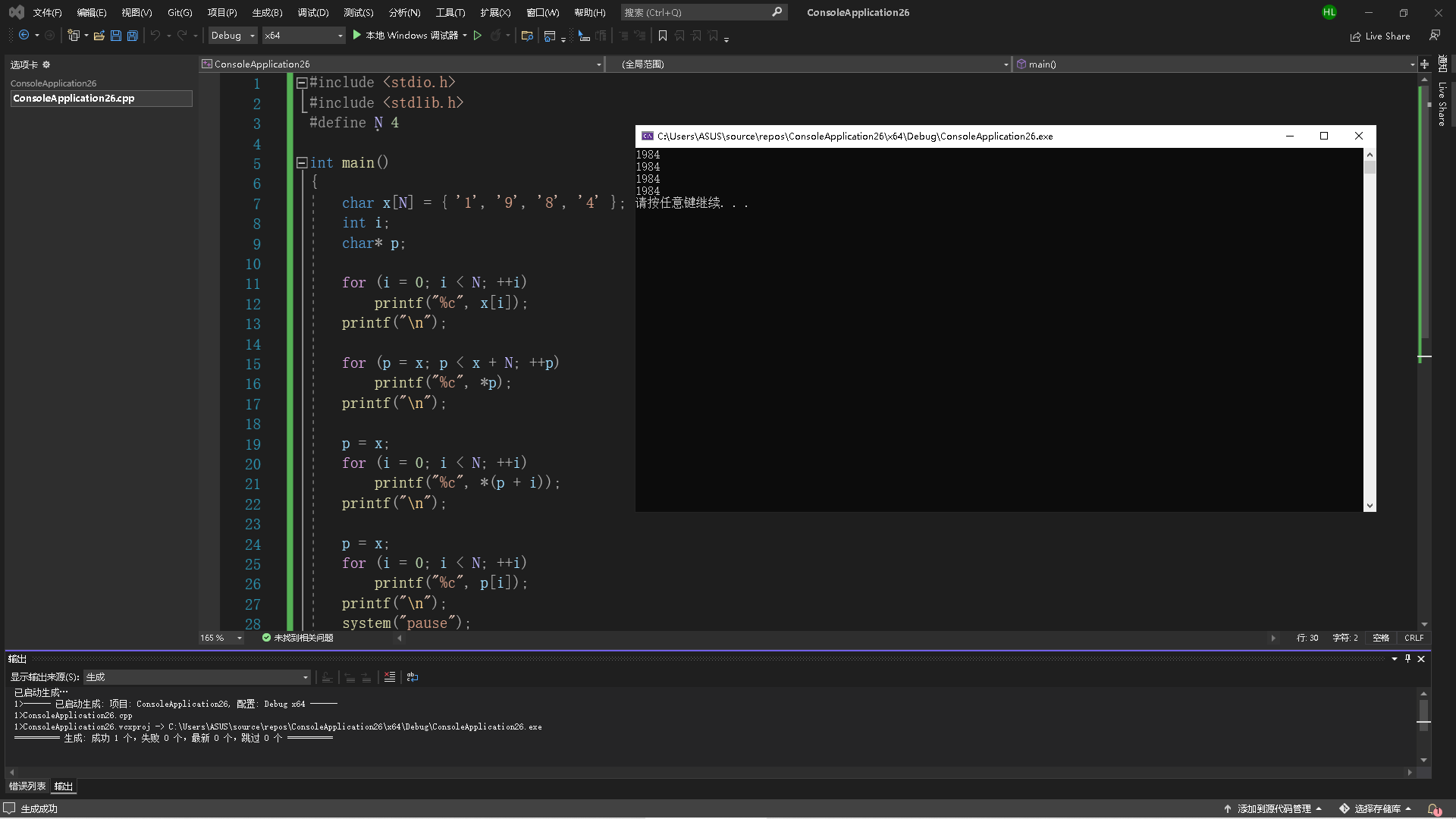
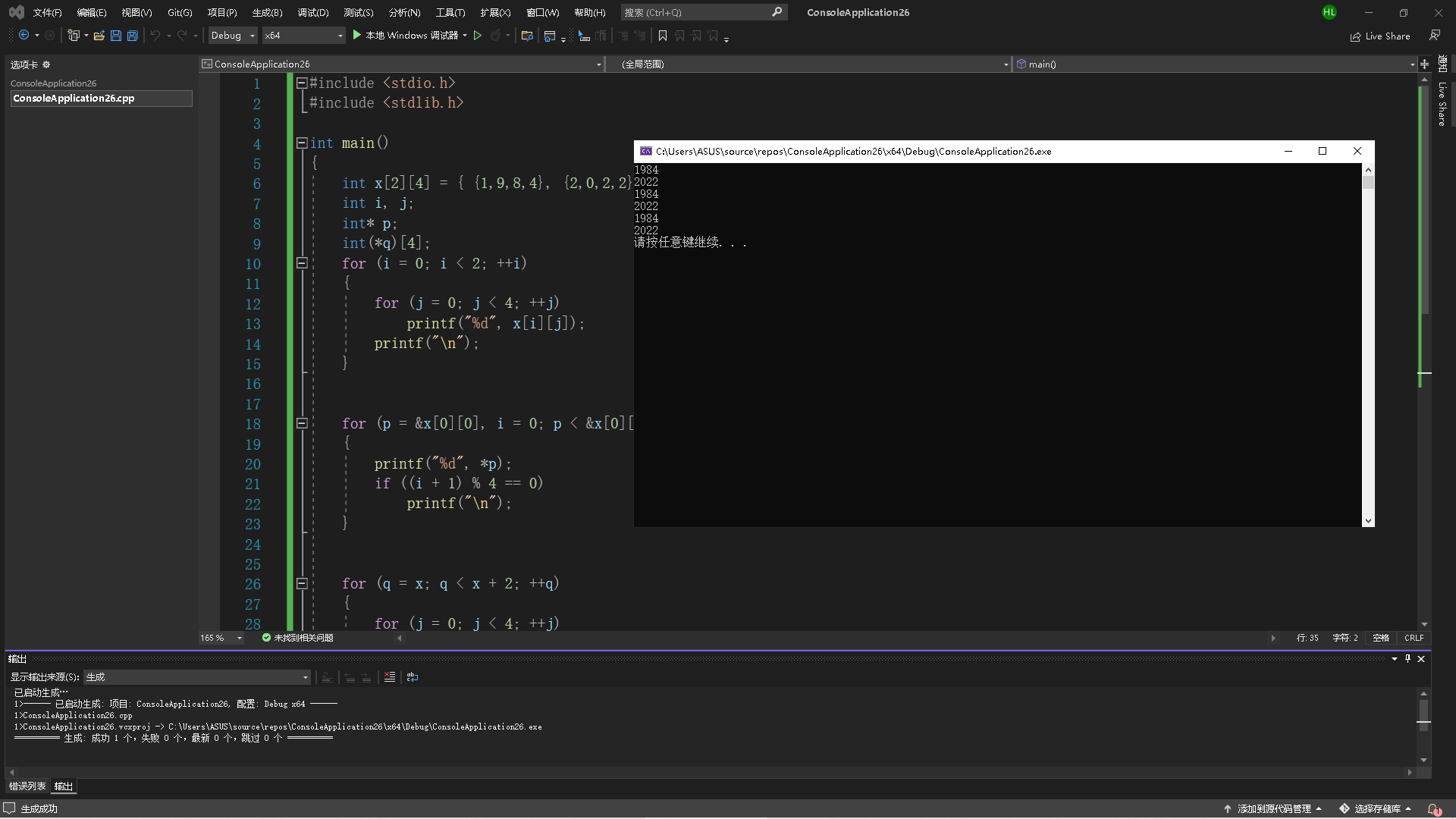

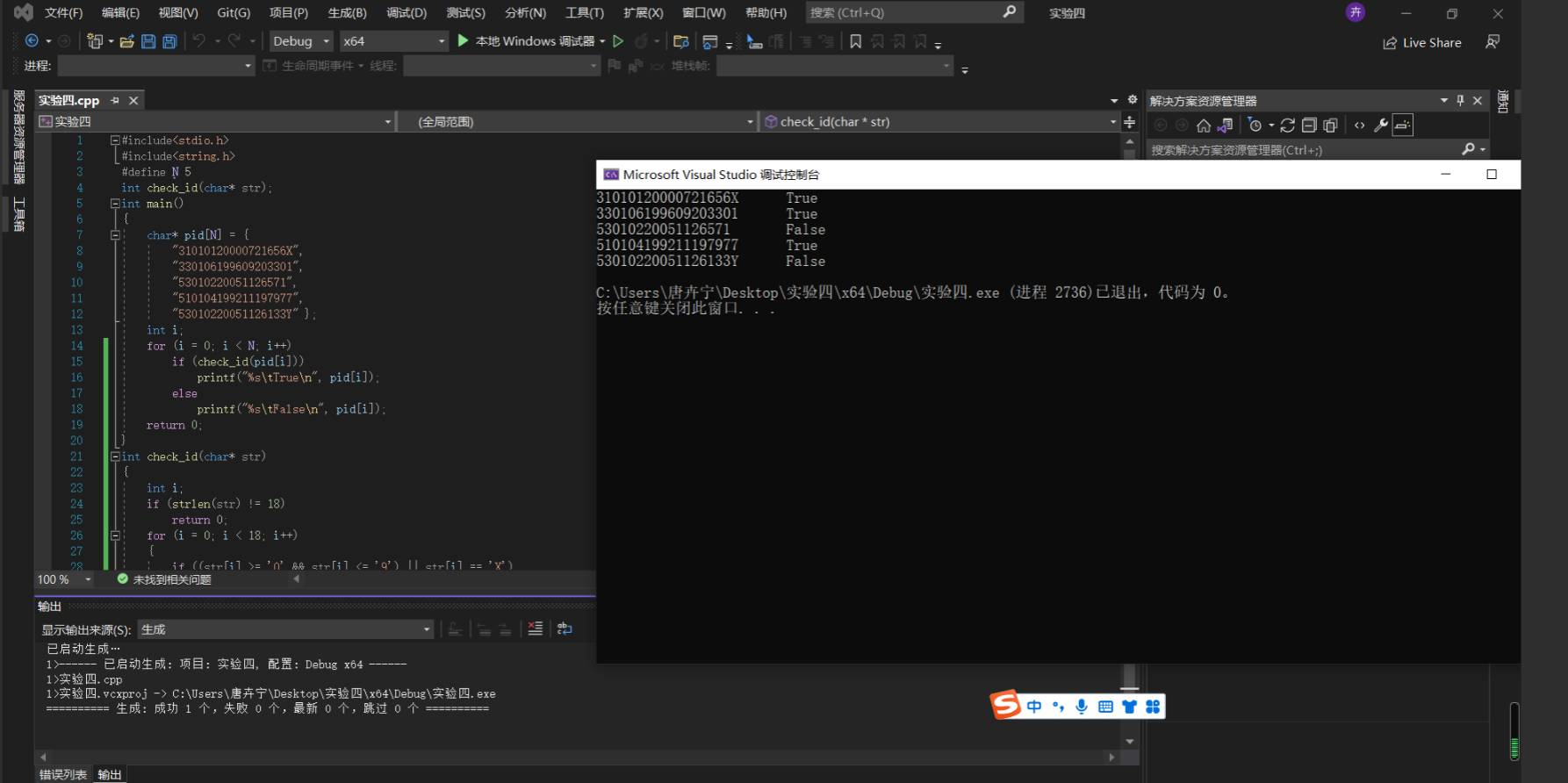

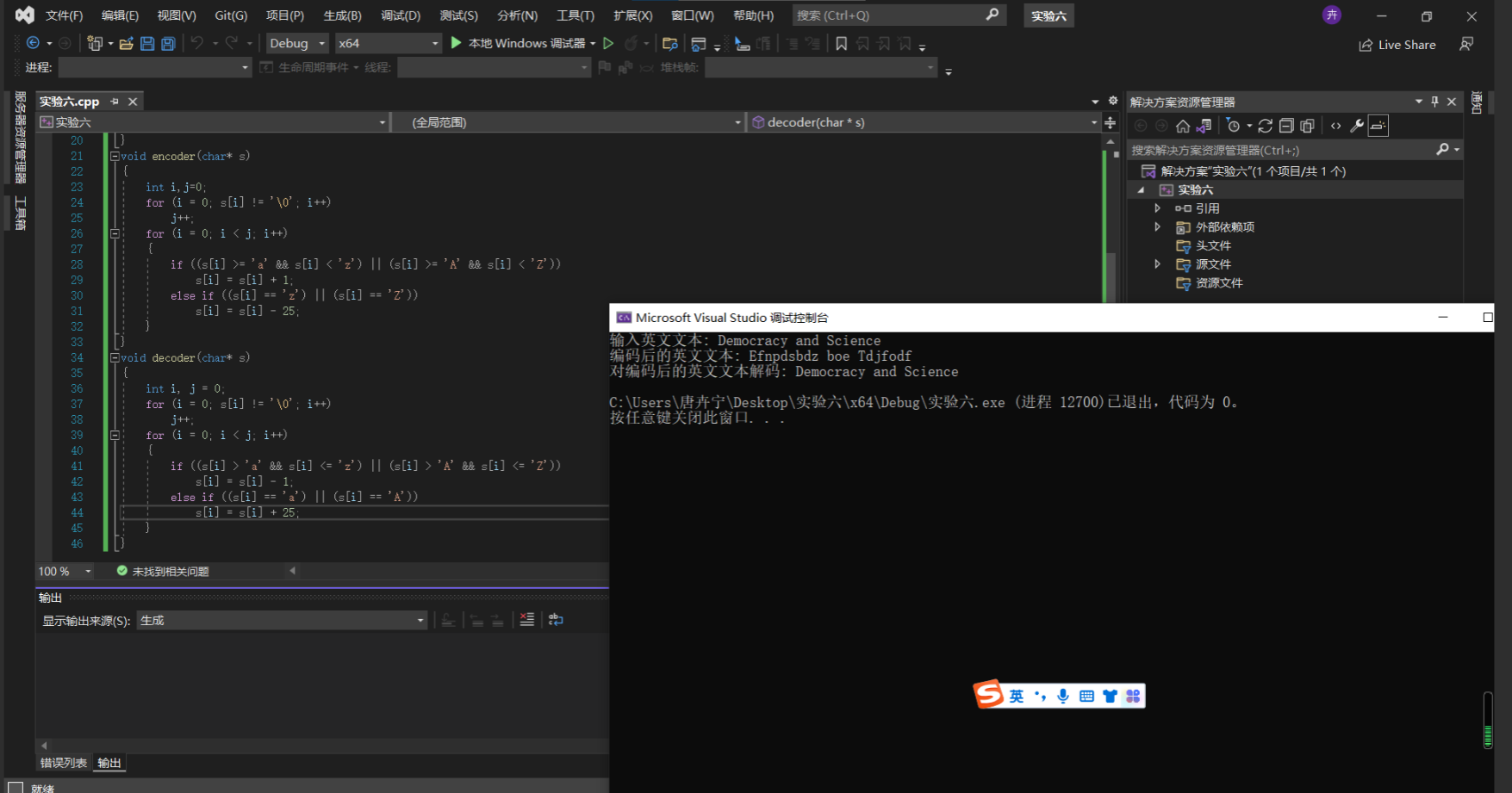

 浙公网安备 33010602011771号
浙公网安备 33010602011771号